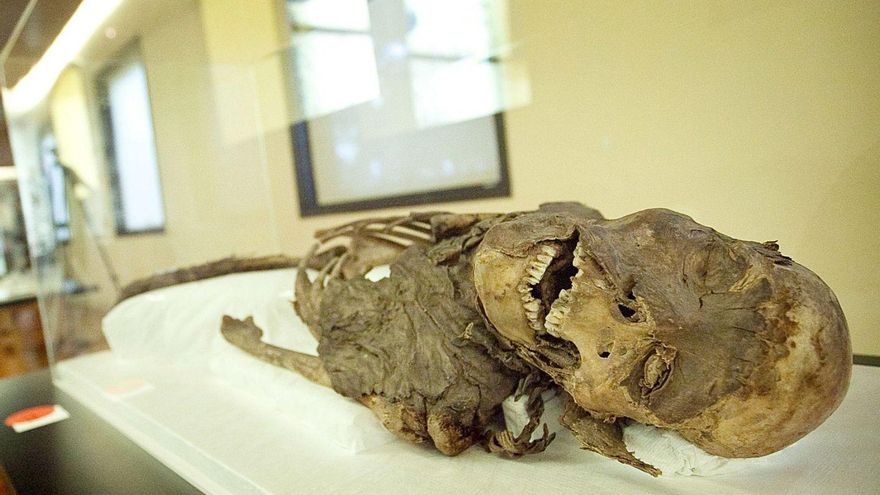
Tenerife will become the epicenter of anthropology at the end of this month. The Council of Tenerifethrough the Autonomous Body of Museums and Centers, organizes the XXII Congress of the Spanish Society of Physical Anthropologywhich will be held between the 27th and 29th of this month in the Museum of Nature and Archeology (MUNA) and Tenerife Espacio de las Artes (TEA) will host this international meeting in which more than a hundred renowned professionals from Spain, South America and Italy will participate.
The meeting will be chaired by the professor emeritus of the University of Granada and president of the Spanish Society of Physical Anthropology, Miguel Botella López, and by the director of the Canarian Institute of Bioanthropology and the Archaeological Museum of Tenerife, Conrado Rodríguez-Maffiotte Martín. It is the first time that an activity of this specialty is held on the Island. The Island Councilor for Museums, Concepción Rivero, assures that it is “a congress with a great reception in which more than a hundred works have been presented”.
Rivero highlights that «Tenerife is a land with an important path in the field of physical anthropology thanks to the interest of foreign and local scientists about the Guanches and their customs». The Minister highlights that the meeting is “an opportunity for researchers from the islands and the rest of the country to update their knowledge and discuss their projects.”
During the three days that the congress will last, various activities will be carried out. Among those that stand out are the conferences that will be given by experts in forensic anthropology, bioarchaeology, primatology, paleoanthropology or, for example, food. The Spanish Society of Physical Anthropology was founded in 1975 and, since then, the subject has undergone great advances, the latest being the creation of the Council of Universities in the Area of Knowledge of Physical Anthropology. The investigation of human genetics, its biology and its way of behaving with the environment are essential factors to know what life was like before our time and to learn essential factors for our development.
The MUNA is a museum of international fame, since its managers have participated in international archeology meetings, although its fame is mainly due to its collection of Guanche mummies and the high quality of its conservation. For this reason, the Museum of Nature and Archeology is a world reference when it comes to the conservation of mummies. In addition, it is considered the most important museum complex in Macaronesia.















